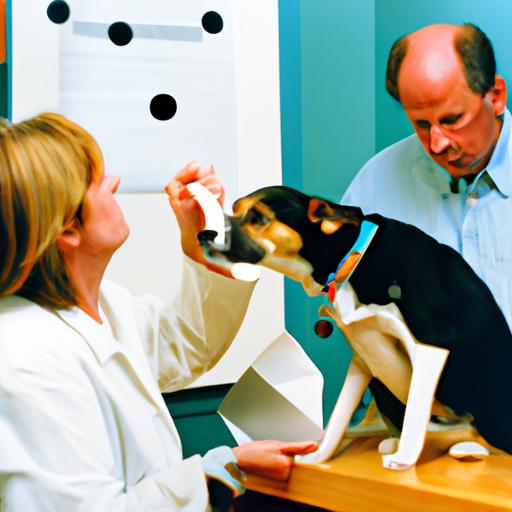Understanding the situation
It’s a distressing sight, isn’t it? You’re sitting there, and suddenly you notice your dog’s nose is bleeding. This is not a common occurrence, and it can be quite alarming. After all, as a caregiver, your first instinct is to ensure the safety and health of your furry friend. In this article, we will explore the potential causes of a dog’s nose bleeding, the possible treatments, and preventive measures.
Potential Causes
There are numerous possible reasons why your dog’s nose could be bleeding. Let’s shed some light on the most common ones:
- Trauma: Just like for us, a slight bump or a scratch can cause a nosebleed. Check if there are visible signs of injury.
- Foreign Objects: Dogs love to sniff around. Sometimes, they might inhale something that irritates their nasal passages, leading to a nosebleed.
- Allergies: Dogs can develop allergies that can occasionally cause nosebleeds.
- Dental Problems: A tooth infection can lead to nosebleeds.
- Medical Conditions: Some more serious issues such as tumors or blood clotting disorders can cause nosebleeds.
| Cause | Frequency |
|---|---|
| Trauma | Common |
| Foreign Objects | Occasional |
| Allergies | Rare |
| Dental Problems | Occasional |
| Medical Conditions | Rare |
Possible Treatments
Depending on the cause, the treatment for a dog’s nosebleed will vary. Here is a general guide:
- For trauma, applying a cold compress and calming your dog down should help.
- If a foreign object is the cause, a vet may need to remove it.
- Allergies can often be managed with medication and by limiting exposure to the allergen.
- Dental problems will likely require treatment from a vet.
- Medical conditions will require professional treatment and possibly ongoing care.
Preventive Measures
Preventing a nosebleed in your dog often involves common sense and good care:
- Regularly check your dog’s environment for potential hazards.
- Keep your dog’s nose clean and clear of foreign objects.
- Regular vet check-ups can help identify and manage allergies.
- Good dental hygiene is essential in preventing tooth-related nosebleeds.
FAQ
Q: Should I rush my dog to the vet if its nose is bleeding?
A: It depends on the severity and duration of the bleeding. If it’s minor and stops quickly, monitor your dog. If it persists, seek veterinary attention.
Q: Can I use human medicine to stop my dog’s nosebleed?
A: No, human medicine can often be harmful to dogs. Always consult with a vet before administering any medication.
Q: How can I prevent my dog from getting nosebleeds?
A: Regular vet check-ups, keeping the environment safe and clean, and good dental hygiene can help prevent nosebleeds.
In conclusion, a nosebleed in your dog can be alarming but understanding the causes, knowing how to act, and taking preventive measures can ensure the well-being of your pet. After all, in the role of a caregiver, your furry friend’s health and happiness is your top priority!



